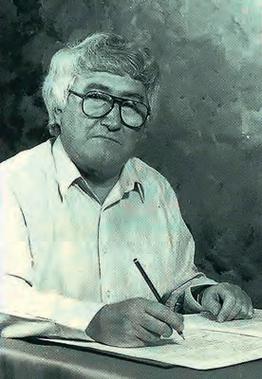Related Research Articles
The BBC Symphony Orchestra is a British orchestra based in London. Founded in 1930, it was the first permanent salaried orchestra in London, and is the only one of the city's five major symphony orchestras not to be self-governing. The BBC SO is the principal broadcast orchestra of the British Broadcasting Corporation (BBC).

The BBC Proms is an eight-week summer season of daily orchestral classical music concerts and other events held annually, predominantly in the Royal Albert Hall in central London. Robert Newman founded The Proms in 1895. Since 1927, the BBC has organised and broadcast The Proms. Each season consists of concerts in the Royal Albert Hall, chamber music concerts at Cadogan Hall, additional Proms in the Park events across the UK on the Last Night of the Proms, and associated educational and children's events. Recently, concerts have been held in additional cities across different nations of the UK, as part of Proms Around the UK. The season is a significant event in British culture and in classical music. Czech conductor Jiří Bělohlávek described the Proms as "the world's largest and most democratic musical festival".

BBC Radio 3 is a British national radio station owned and operated by the BBC. It replaced the BBC Third Programme in 1967 and broadcasts classical music and opera, with jazz, world music, drama, culture and the arts also featuring. The station has described itself as "the world's most significant commissioner of new music".

Michael Ashley Ball is an English singer, presenter and actor. In 1985, he made his West End debut as Marius Pontmercy in the original production of Les Misérables. In 1989, he reached number two in the UK Singles Chart with "Love Changes Everything", from the musical Aspects of Love, where he played Alex Dillingham. He played the role in the West End and on Broadway. His album Coming Home To You reached number one in the UK making it his 4th number one album to date. On 24 April 2020, Ball and Captain Tom Moore entered the UK Singles Chart at number one with a cover of "You'll Never Walk Alone", with combined chart sales of 82,000 making it the fastest-selling single of 2020.
The BBC Concert Orchestra is a British concert orchestra based in London, one of the British Broadcasting Corporation's five radio orchestras. With around fifty players, it is the only one of the five BBC orchestras which is not a full-scale symphony orchestra. The BBC Concert Orchestra is the BBC's most populist ensemble, playing a mixture of classical music, light music and popular numbers. Its primary role is to produce music for radio broadcast, and it is the resident orchestra of the world's longest-running live music programme, Friday Night is Music Night on BBC Radio 3.

Gordon Langford was an English composer, arranger and performer. He is well known for his brass band compositions and arrangements. He was also a composer of choral and orchestral music, winning an Ivor Novello award for best light music composition for his March from the Colour Suite in 1971.

Light music is a less-serious form of Western classical music, which originated in the 18th and 19th centuries and continues today. Its heyday was in the mid‑20th century. The style is through-composed, usually shorter orchestral pieces and suites designed to appeal to a wider context and audience than more sophisticated forms such as the concerto, the symphony and the opera.

The BBC Big Band, originally known as the BBC Radio Big Band is a British big band, previously run under the auspices of the British Broadcasting Corporation (BBC). The band broadcasts exclusively on BBC Radio, particularly on BBC Radio 2's long-running series Big Band Special. It consists of professional musicians and is directed by a number of conductors. These include arranger and composer Barry Forgie, who has been the band's Musical Director since 1977, American jazz trombonist Jiggs Whigham, and guest musical directors.
Charles Williams was a British composer and conductor, contributing music to over 50 films. While his career ran from 1934 through 1968, much of his work came to the big screen as stock music and was therefore uncredited.

The Golders Green Hippodrome was built in 1913 by Bertie Crewe as a 3,000-seat music hall, to serve North London and the new London Underground Northern line expansion into Golders Green in the London Borough of Barnet, London, England.

Neil Brand is an English dramatist, composer and author. In addition to being a regular silent film accompanist at London's National Film Theatre, Brand has composed new scores for two restored films from the 1920s, The Wrecker and Anthony Asquith's Underground.

Sidney Torch MBE was a British pianist, cinema organist, conductor, orchestral arranger and a composer of light music.
Gavin Sutherland is a conductor, composer/arranger, pianist and musicologist. He is currently Principal Guest Conductor for English National Ballet.
Philip Green, sometimes credited as Harry Philip Green or Phil Green, was a British film and television composer and conductor, and also a pianist and accordion player. He made his name in the 1930s playing in and conducting dance bands, performed with leading classical musicians, scored up to 150 films, wrote radio and television theme tunes and library music, and finally turned to church music at the end of his life in Ireland, a song from which period proved so popular that it reached No. 3 on the Irish chart in 1973.
BBC Orchestras and Singers refers collectively to a number of orchestras, choirs and other musical ensembles, maintained by the BBC.
Robert Docker was an English composer, arranger and pianist, especially noted for his orchestral arrangements and original light music compositions. The son of a Paddington gas worker, he was educated at North Paddington Central School, and with the aid of a London County Council Scholarship was able to study viola, piano and composition at the Royal Academy of Music. His viola professor at the RAM was James Lockyer. During World War II, he was a sergeant in the King's Royal Rifle Corps stationed in Northumberland. He was later married to the viola player Meryl Unsworth and in later life resided in Suffolk.

BBC Radio 2 is a British national radio station owned and operated by the BBC. It is the most popular station in the United Kingdom with over 14 million weekly listeners. Since launching in 1967, the station broadcasts a wide range of content. The 'About Radio 2' BBC webpage says: "With a repertoire covering more than 60 years, Radio 2 plays the widest selection of music on the radio - from classic and mainstream pop to country, folk, jazz, musical theatre, soul, hip hop, rock 'n' roll, gospel and blues."

Kenneth Alwyn Wetherell was a British conductor, composer, and writer. Described by BBC Radio 3 as "one of the great British musical directors", Alwyn was known for his many recordings, including with the London Symphony Orchestra on Decca's first stereophonic recording of Tchaikovsky's 1812 Overture. He was also known for his long association with BBC Radio 2's orchestral live music programme Friday Night is Music Night, appearing for thirty years as a conductor and presenter, and for his contribution to British musical theatre as a prolific musical director in the 1950s and 1960s. He was a Fellow of the Royal Academy of Music and married the actress Mary Law in 1960. His website and the first volume of his memoirs A Baton in the Ballet and Other Places were both published in 2015. The second volume Is Anyone Watching? was published in 2017.
Matthew Curtis is a British classical composer.
William Lambert Williamson was a British composer and conductor, best known for his scores for films, short documentaries and light music.
References
- ↑ "Friday Night is Music Night". Radio Times . Vol. 120, no. 1558 (London ed.). BBC Publications. 18 September 1953. p. 43. Retrieved 16 January 2020.
- 1 2 3 4 "The BBC announces host of new classical music programming across TV and Radio". BBC Media Centre. 26 February 2024.
- ↑ "Cancelled: Friday Night is Music Night | when You Believe: The Musical World of Stephen Schwartz".
- ↑ "60th Anniversary Concert". BBC Programmes. 13 October 2013.
- ↑ "In Memoriam Cynthia Glover". Clifton High Foundation. 13 April 2019.
- ↑ Show History at Radio Rewind.
- ↑ YouTube: Dominic Ferris interviews Anthony Cherry (Executive Producer "Friday Night Is Music Night")
- ↑ BBC.co.uk: Producer Anthony Cherry on staging a bold, ambitious Friday Night concert, celebrating the music of Ireland
- ↑ McDonald, Tim (15 October 2003). "Obituary: Robin Boyle". The Guardian . London. Retrieved 15 November 2018.
- ↑ The Lost Decade, BBC Four, accessed 16 November 2010
- ↑ "Sunday Night is Music Night". BBC. Retrieved 4 January 2020.
- ↑ "Radio 2 to air special programme Doctor Who @60: A Musical Celebration". Radio Today. 30 September 2023.